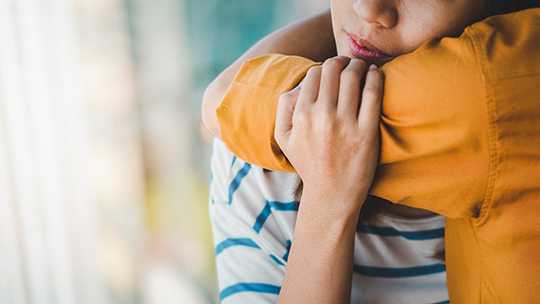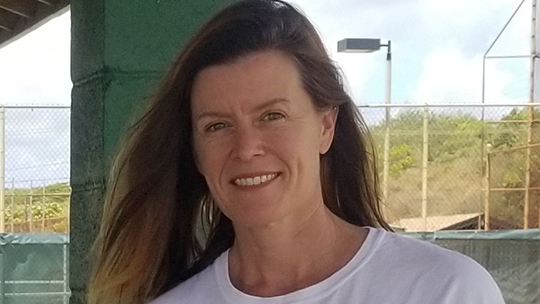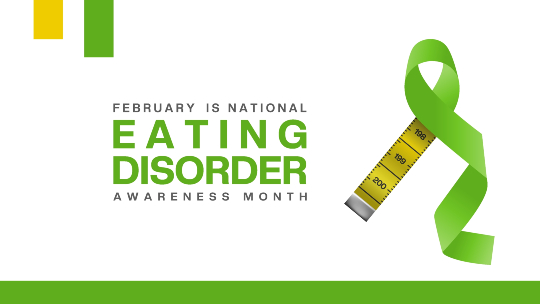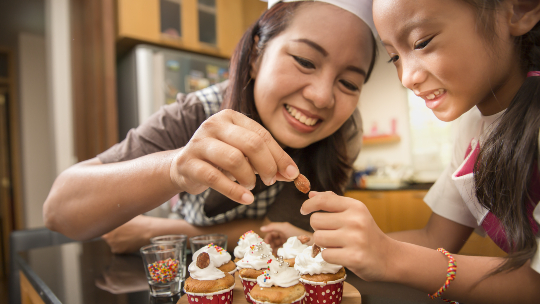Remember what it was like being a teenager? Not sure where you belonged? Unsure of what the future may bring? Remember that one person who took the time to listen – really listen to you? It might have been a parent, tutu, auntie or uncle, teacher, coach, or minister.

You can be that lifesaver. That one person who makes all the difference to a young person. Including young people in our lives can be as simple as listening and asking if they’re OK. You can help our youth feel aloha rather than despair.

At the Kauai Resilience Project, we provide opportunities to lift young people toward a brighter, healthier future. We’re a nonprofit organization that offers programs and resources to engage youth in and out of the classroom and help them connect with their community.
Here are 10 tips that adults can do to help a child build resilience, grow up strong, and thrive.
- The power of hello
When you see a young person you know, greet them with an aloha. By simply acknowledging them, you’re letting them know that they matter. It will make their day and yours, too. - Ten minutes a day
If you’re a parent, listening to your child one on one for at least 10 minutes a day can lower their anxiety and help them resolve issues. Give them your undivided attention and listen to their hopes and challenges. - Share family meals
Eat meals together throughout the week. Put away all digital devices, such as cellphones and tablets. Turn of the TV. Share conversations during mealtimes. Sharing meals means aloha. It can help improve their health and wellness, grades, and test scores. It can also help decrease depression and risky behaviors, such as smoking, drinking, and drug use. - Limit screen time
Studies show that screen time, especially social media, is linked to increased anxiety, depression, and isolation. Limit screen time and replace it with other social activities, such as a board game, backyard activities, or a walk. They are great ways to make kids feel more connected with their family and community. It can also help reduce their anxiety and limit their exposure to cyber bullying. - Connect with others
Help young people connect with others through community service, volunteering, or other meaningful activities. This could be faith-based, beach clean-ups, helping at an animal shelter, or making dinner for a relative, friend, or neighbor. Connecting with others or a higher power can lead to a sense of belonging and purpose. - Create a favorite activity or hobby
Start fun traditions, such as Friday game night, Saturday movie night, or Sunday afternoon fishing. It will show that you care and gives kids something to look forward to, especially during a more challenging week. - Create a consistent job at home, in school, or in the community
Help kids to contribute to the family or group, develop a sense of accomplishment, learn important life skills, and build a sense of pride and responsibility. At home this could include doing yard work, taking care of pets, and washing the dishes after meals. - Solve problems
Instead of telling a young person what needs to be done, have them try to figure out an issue on their own. You can guide them along the way. It will help them develop important life skills and be critical thinkers. - Understand finances
Financial literacy is a core building block of resilience. Find ways to help a child save and grow their money, such as setting up a bank account for them. Have them work for their money so they can realize the value of their earnings. It will help them plan for their future, understand what they’ll need to have a good quality of life, save for things they might want, and see college or a career as a positive opportunity. - Be a champion
Every child deserves someone in their corner. A champion is an adult who never gives up on a child. Praise them, speak positively about them to others, be their advocate when they get stuck, and cheer for their activities.
For more information about how to build resilience in young people, visit The Kauai Resilience Project or call 808-632-2005.

Alice Luck is president and CEO of Kauai Resilience Project. (Photo: courtesy of Kauai Resilience Project)
Learn more about resilience
Read about Hawaii’s new Office of Wellness and Resilience. For more information, call 808-586-0034 or email gov.owr@hawaii.gov.
If you need someone to talk to or if you or someone you know is in crisis, call or text Hawaii CARES at 988.




